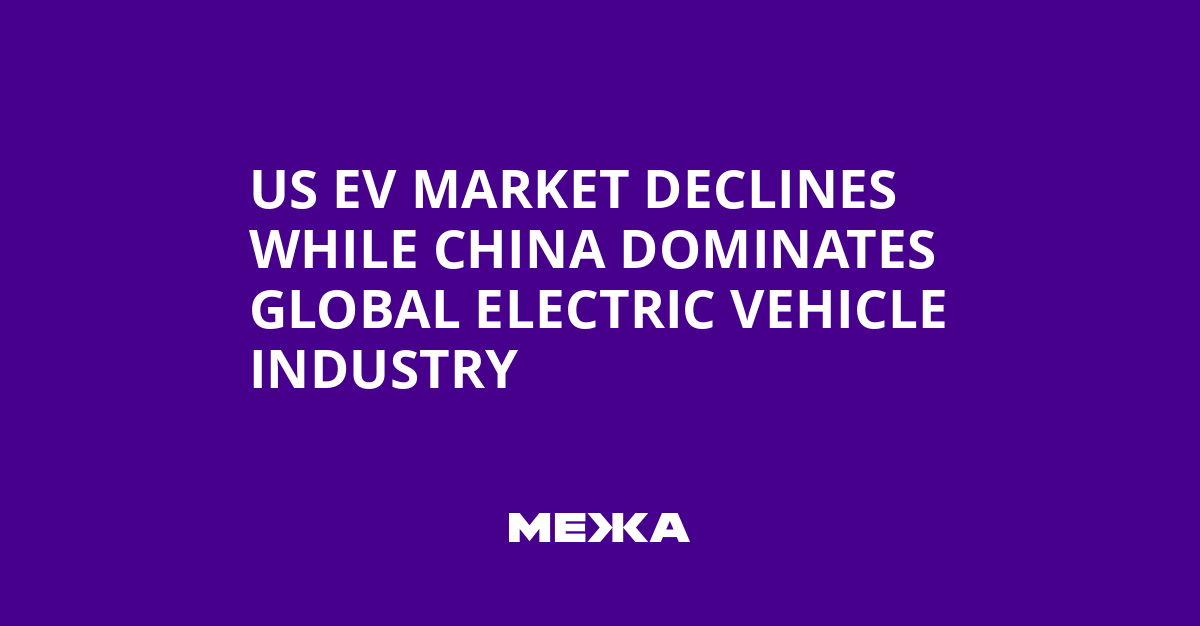In the global contest for leadership in electric vehicle production, the United States is weakening support for EVs, while China – the main economic rival – continues to move forward, strengthening its dominance in global electric vehicle sales and in the supply chains for batteries and rare earth elements.
After returning to power, Trump and his allies rolled back some incentives for electric vehicles, halted funding for charging infrastructure, and repealed fuel-economy targets for manufacturers.
As a result, the U.S. is retreating in the EV segment, while China is strengthening its leadership in both global sales and supply chains that are shaping the future of the industry.
In the political context, anti-EV policies have roots in the interests of the oil and gas sector, but in the face of trade tensions with China, moving away from EVs looks controversial, especially given that U.S. incentives were also aimed at countering China and developing American battery plants and regulatory measures to address unfulfilled commitments at home.
Trump could have gone further and encouraged EV manufacturers and consumers within the United States, but official statements emphasize a focus on restoring the United States’ role as a global player in energy and manufacturing by reducing regulations and bringing jobs back home.
The global EV market outlook continues to shift in China’s favor: BYD and Geely are more actively entering external markets, particularly in Europe and Latin America, where demand and prices remain attractive.
Context and Impact on the Automotive Industry
American manufacturers are not abandoning EVs, but they face financial losses and a slowing momentum after the expiration of the $7,500 tax credit. GM warned of a $1.6 billion loss due to reduced EV production; Ford posted significant costs in its EV division; Stellantis is dialing back its ambitions in the U.S. market; Honda halted Acura ZDX production in the U.S.; and even Tesla faces the need to pivot toward artificial intelligence and robotics.
The U.S. tariff policy implemented in spring imposes a 25% tariff on imported cars and parts, increasing costs for manufacturers and prices for consumers, adding uncertainty to the industry. Experts note that overall instability is pushing automakers to cut costs and focus on survival amid economic uncertainty.
At the same time, Chinese manufacturers continue to aggressively expand exports, and their advantage in cost and technology draws attention from global markets. This underscores that China is not only strengthening supply chains but also shaping global standards in the EV realm.
“The handwriting on the wall about gasoline is clear: handing over EV technology to China would be a huge mistake.”
“I think this is a serious risk to national security, because it is the future of transportation.”
“Do we want this to be dominated by the Chinese, or by someone else?”
“We should be the ones developing new things, but we are moving away from the new thing.”


